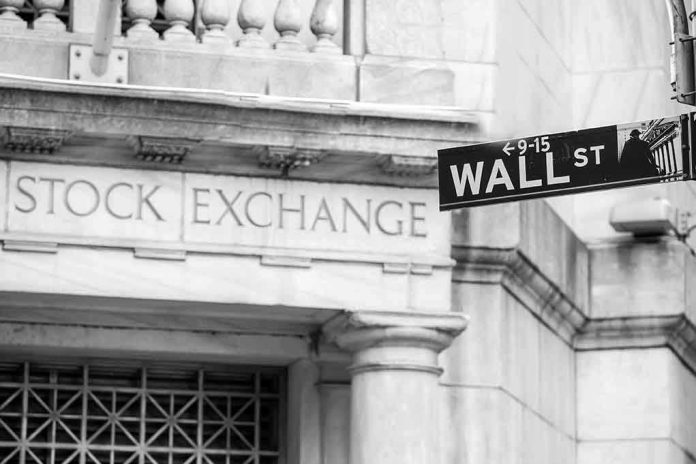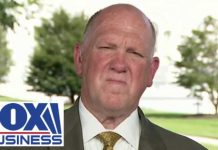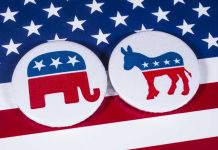
After years of rising frustration with leftist policies and government overreach, a new Gallup poll’s record-low support for capitalism signals an alarming shift: socialism is gaining ground in America, threatening conservative values and the nation’s economic foundation.
Key Points
- Gallup poll shows only 54% of Americans now view capitalism positively, hitting a historic low.
- Support for socialism rises, especially among younger adults and Democrats, with 39% favorability.
- Economic hardship, inflation, and wealth inequality fuel generational and partisan divides.
- Big business faces declining trust, while small business remains overwhelmingly favored.
Gallup Poll Signals Major Shift in American Economic Attitudes
In August 2025, Gallup conducted a nationwide survey revealing that just 54% of Americans now hold a positive view of capitalism, the lowest rating since the poll’s inception in 2010. This decline comes as support for socialism remains steady or slightly climbs, with 39% expressing favorable opinions. The data highlights stark divides: younger adults and Democrats increasingly reject capitalism, while Republicans and older Americans maintain stronger support. The poll’s release in September ignited debate about the future of the U.S. economic system and the durability of traditional values.
Generational and partisan differences stand out as defining factors in the new economic landscape. Among young adults, just 43% view capitalism positively compared to 54% negatively. Socialism’s favorability peaks at 49% in this group and reaches two-thirds among Democrats. Meanwhile, Republicans and older citizens continue to defend capitalism as the backbone of American prosperity. The shift is especially concerning for conservatives, as progressive leaders seize on these trends to push for systemic change, greater government intervention, and policies that often conflict with foundational constitutional principles.
Economic Pressures Driving Ideological Change
Persistent inflation, stagnant wages, and surging housing costs are fueling public disillusionment with capitalism. The top 0.1% now control over five times the wealth of the bottom 50%, underscoring concerns about fairness and opportunity. These economic pressures have been exacerbated by years of fiscal mismanagement and policies perceived as favoring globalism and big business over American families. Gallup analysts attribute the declining support for capitalism to these systemic challenges, which have eroded trust in large corporations—only 37% of Americans now view big business positively. Small businesses, however, retain a remarkable 95% favorability, suggesting that local enterprise remains a pillar of trust and stability.
Progressive politicians such as Bernie Sanders, Alexandria Ocasio-Cortez, and Zohran Mamdani have capitalized on economic anxiety, advancing platforms centered on wealth redistribution, government healthcare, and expanded social programs. In the summer of 2025, Mamdani’s victory in the New York City mayoral primary signaled growing momentum for socialist-leaning candidates. High-profile rallies in traditionally conservative regions further reflect shifting attitudes, with progressive leaders citing poll results to legitimize their push for sweeping economic reforms. For many conservatives, these developments represent a direct challenge to free enterprise and individual liberty.
Political and Social Ramifications for Conservative Values
Short-term impacts of the polling shift include heightened public debate and increased activism among youth and working-class Americans. Progressive and populist movements are gaining traction, intensifying polarization and prompting both parties to reconsider their platforms. The long-term consequences may be even more profound: if the current trajectory continues, the U.S. could face structural economic reforms and a potential realignment of political identities. Conservatives warn that policies favoring socialism risk eroding the Constitution, undermining gun rights, and diminishing family values through expanded government control.
This polling shift likely reflects growing frustration with systemic inequalities rising costs, wage stagnation, and a sense that capitalism isn’t serving everyone equally. As more Americans, particularly Democrats and Independents, grow disillusioned. https://t.co/aZclttb6c4
— Bitternesstojoy (@Bitternesstojoy) September 8, 2025
Despite the dramatic decline in capitalism’s favorability, experts caution that support for socialism remains a minority position overall. Americans overwhelmingly endorse free enterprise and small business, which could serve as a bulwark against radical change. Nevertheless, the generational divide and growing distrust of big business suggest a volatile period ahead. The stakes for constitutional protections, economic freedom, and traditional American values have never been higher, as progressive forces seek to redefine the nation’s future.
Sources:
Favorability on the decline: Gallup capitalism poll, Washington Examiner
54 Percent Americans View Capitalism Positively: Gallup, American Bazaar Online
Big business, capitalism at 15-year low popularity with Americans, Business Insider
Image of Capitalism Slips, Gallup
Americans: Capitalism, Socialism, Big Business – Gallup Poll, Axios












